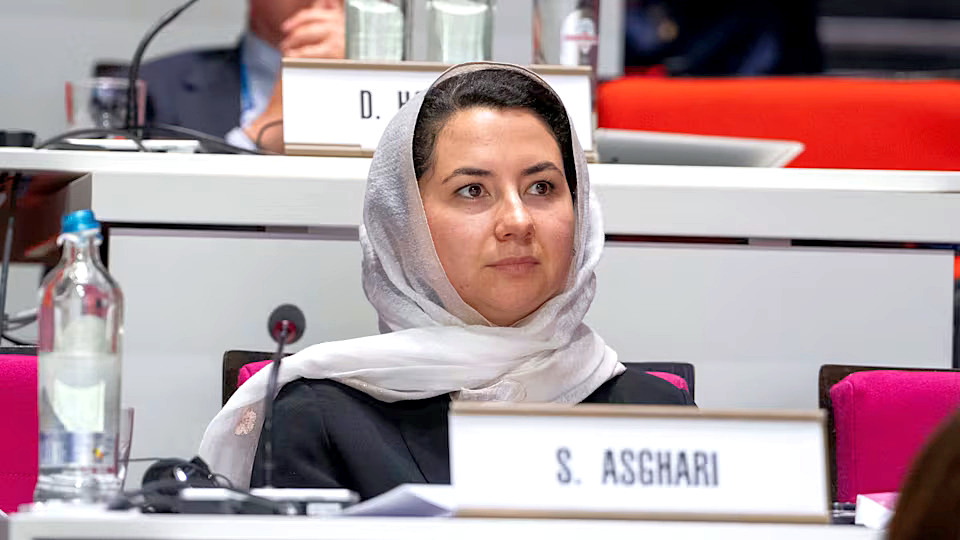
This op-ed was originally published in the opinion section of USA Today.
I began playing basketball at my school in Kabul, Afghanistan, at age 14. Because of the Taliban, I have been a refugee twice. First in Iran as a child, and now a second time, I am outside my country. When my family returned to Afghanistan in 2003, I was in the first generation of girls able to return to school and play many sports.
But basketball for girls – and indeed all sports – was not widely accepted in Afghan society, and as female athletes, we were frequently threatened by extremists. It was a radical act for me as a girl to hold a basketball or to wear athletic clothes. So, I would wear my Converse All-Star shoes off the court – in public – to make the point that I and all women and girls had the right to play sport.
Before the Taliban returned to power, the number of female athletes was growing in Afghanistan. In order to even get to the playing fields and tournaments that other athletes worldwide take for granted, we women had to become human rights advocates, educators and community leaders. Sport became our vehicle for promoting our own rights, including the rights to health and education. Ultimately, millions of Afghan women and girls were able to play sport in school, to ride bikes and to dream of sports scholarships, competing for our country and even opening gyms or building businesses around sport.
Today, Afghan women and girls have been forced off the courts, away from tracks and out of gyms by the Taliban, which took over the government of my country for a second time in August 2021. In the weeks after Kabul was captured, the Taliban overturned 20 years of progress in women’s rights. Girls were no longer allowed to attend school after the sixth grade, women cannot work, and female athletes had to burn their jerseys, bury their medals, hide sports equipment or flee the country.
Yet when the Paris Olympics opened this week, three Afghan women athletes visibly led in the Parade of Nations on the River Seine, along with three Afghan male athletes.
The women Olympians had to leave Afghanistan to represent Afghanistan at the Paris Games. Following the Taliban takeover, thousands of male and female Afghan athletes sought refuge abroad, where they could continue training and competing. This includes past Olympians and Paralympians, national athletes in dozens of sports, and members of the Afghan women’s national football, basketball and cricket teams.
It is important that, even as the Taliban is minimising and restricting all women’s rights in our country, in Paris, women Olympians will proudly represent our country to an audience of billions on the world stage.
As a former women’s national basketball team player, I am proud of all the athletes from my country, and that I can represent them as a female International Olympic Committee (IOC) Member. The Olympic Charter outlines the principles that guide the work of the IOC, including to oppose gender-based discrimination. This is why the IOC recognises and supports the Afghan women Olympians, even though the Taliban government does not.
Afghan sprinter Kimia Yousofi will compete in her third Olympics in Paris. Kimia says she “represent[s] the stolen dreams and aspirations” of women and girls in Afghanistan: “Those who don’t have the authority to make decisions as free human beings.”
Kimia and other Afghans competing in Paris are the clearest sign the Taliban have not succeeded in crushing women’s sport or women’s spirits.
The Taliban crave international recognition. No country or UN body has accepted their legitimacy to govern, chiefly because of their ongoing discrimination against women. The International Olympic Committee has rightly barred Taliban officials from attending these Paris Games, which are the most gender equal ever.
But this is not the end game for Afghan women and girls. There is still leverage and an urgent need for governments, the United Nations and other key players to apply pressure to restore Afghan women’s basic human rights.
As we cheer for all athletes at the 2024 Olympics and Paralympics, we should not forget the 20 million Afghan women and girls who are denied their basic rights to access education, work, health – and sport.








